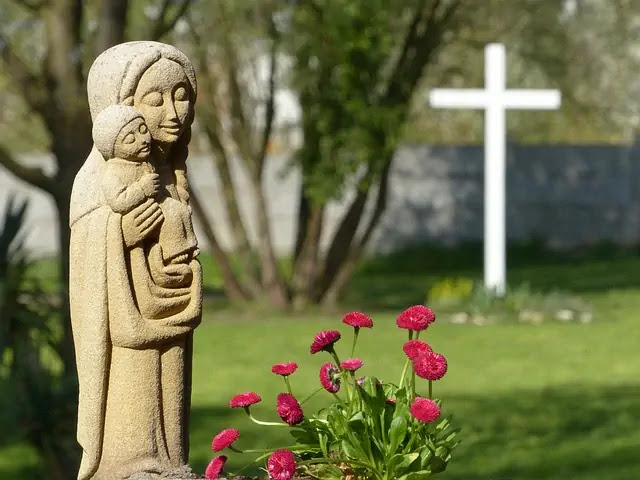Christianity, one of the world’s major religions, has a rich and diverse history spanning over two millennia. Throughout this history, numerous individuals have emerged as key figures, whose lives and contributions have left an indelible mark on the faith. In this blog post, we will explore the fascinating lives and enduring legacies of some of these influential figures in Christian history.
- Saint Paul (c. 5–67 AD):
Saint Paul, also known as the Apostle Paul, was an early Christian missionary and writer who played a pivotal role in the spread of Christianity. Initially a persecutor of Christians, he underwent a profound conversion experience on the road to Damascus. This event transformed him into one of the most influential figures in Christian history.
Paul’s tireless efforts in spreading the teachings of Jesus Christ took him on three major missionary journeys throughout the Roman Empire. He wrote numerous letters, known as the Pauline Epistles, which provide valuable theological insights and guidance to the early Christian communities. His writings continue to inspire and shape Christian theology to this day.
- Saint Augustine (354–430 AD):
Saint Augustine, a bishop and theologian, stands as one of the most important figures in the development of Christian thought. His monumental work, “Confessions,” remains a classic of Christian literature, detailing his spiritual journey and search for truth. Augustine’s writings explored profound philosophical and theological concepts, including original sin, grace, and the nature of God.
Additionally, Augustine played a crucial role in shaping Christian doctrine through his defense of orthodox beliefs against various heresies. His contributions to the understanding of divine sovereignty and the nature of evil continue to influence theologians and philosophers.
- Martin Luther (1483–1546):
The Protestant Reformation, a movement that profoundly impacted Christianity, owes much to the efforts of Martin Luther. As a German monk and theologian, Luther’s Ninety-Five Theses, which he famously nailed to the church door in Wittenberg, challenged the corrupt practices of the Catholic Church. This act of defiance sparked a wave of reform across Europe and led to the formation of Protestant denominations.
Luther emphasized the doctrine of salvation by faith alone, the authority of Scripture, and the priesthood of all believers. His translation of the Bible into vernacular German made the Scriptures accessible to a broader audience, and his theological writings, such as “The Bondage of the Will” and “The Freedom of a Christian,” contributed significantly to the shaping of Protestant theology.
- Saint Teresa of Ávila (1515–1582):
Saint Teresa of Ávila, a Spanish mystic, writer, and reformer, left an indelible mark on Christian spirituality. As a Carmelite nun, she sought to revive the contemplative life within the Church. Her seminal work, “The Interior Castle,” explores the soul’s journey toward union with God and provides profound insights into the nature of prayer and spiritual life.
Teresa’s reforms within the Carmelite order, emphasizing simplicity, poverty, and prayer, led to the establishment of the Discalced Carmelites. Her writings continue to inspire seekers of deeper spiritual experiences, and she is recognized as a Doctor of the Church for her theological contributions.
- Dietrich Bonhoeffer (1906–1945):
Dietrich Bonhoeffer, a German Lutheran pastor, theologian, and anti-Nazi dissident, exemplified the profound courage and commitment of his Christian faith. As Adolf Hitler’s regime rose to power, Bonhoeffer became a vocal critic of the Nazi ideology and actively resisted the persecution of Jews and the erosion of Christian principles.
His writings, particularly “The Cost of Discipleship” and “Letters and Papers from Prison,” captured the essence of authentic Christian discipleship and challenged the complacency of the church in the face of injustice. Bonhoeffer’s active involvement in the resistance movement ultimately led to his arrest and execution by the Nazis.
His martyrdom and unwavering commitment to his faith continue to inspire Christians around the world to stand up for justice, even in the face of extreme adversity. Bonhoeffer’s writings on ethics, community, and the role of the church remain influential in theological discussions and serve as a reminder of the power of Christian resistance in the face of evil.
- Mother Teresa (1910–1997):
Mother Teresa, born Anjezë Gonxhe Bojaxhiu in Skopje, modern-day North Macedonia, dedicated her life to serving the poorest of the poor. Founding the Missionaries of Charity, she established homes, clinics, and centers for the destitute and those suffering from terminal illnesses. Mother Teresa’s selfless acts of love and compassion made her an icon of Christian charity and inspired countless individuals to embrace a life of service.

Her tireless work in the slums of Kolkata (formerly Calcutta), India, earned her global recognition and numerous awards, including the Nobel Peace Prize. Mother Teresa’s unwavering commitment to the dignity and worth of every human life exemplified the core teachings of Christianity and continues to inspire people to serve the marginalized and forgotten.
Conclusion:
The contributions of these key figures in Christian history have shaped the faith, inspired generations, and influenced the world. From the early missionaries like Saint Paul, who spread the Gospel throughout the Roman Empire, to modern-day exemplars like Mother Teresa, who embodied love and compassion, these individuals have left enduring legacies that continue to resonate. Visit BibleKeeper.com where you will find lots of useful tips and ideas.
Their writings, teachings, and acts of faith have contributed to the development of Christian theology, spirituality, and social justice. Their courage, conviction, and unwavering commitment to their beliefs serve as a reminder of the transformative power of Christianity and the capacity of individuals to impact the world around them.
As we reflect on the lives of these key figures in Christian history, we are inspired to embrace their legacies and strive to live out our faith with the same boldness, compassion, and dedication. Their stories remind us that each of us has the potential to make a difference, and through our own lives and contributions, we can continue the rich tapestry of Christian history for generations to come.
